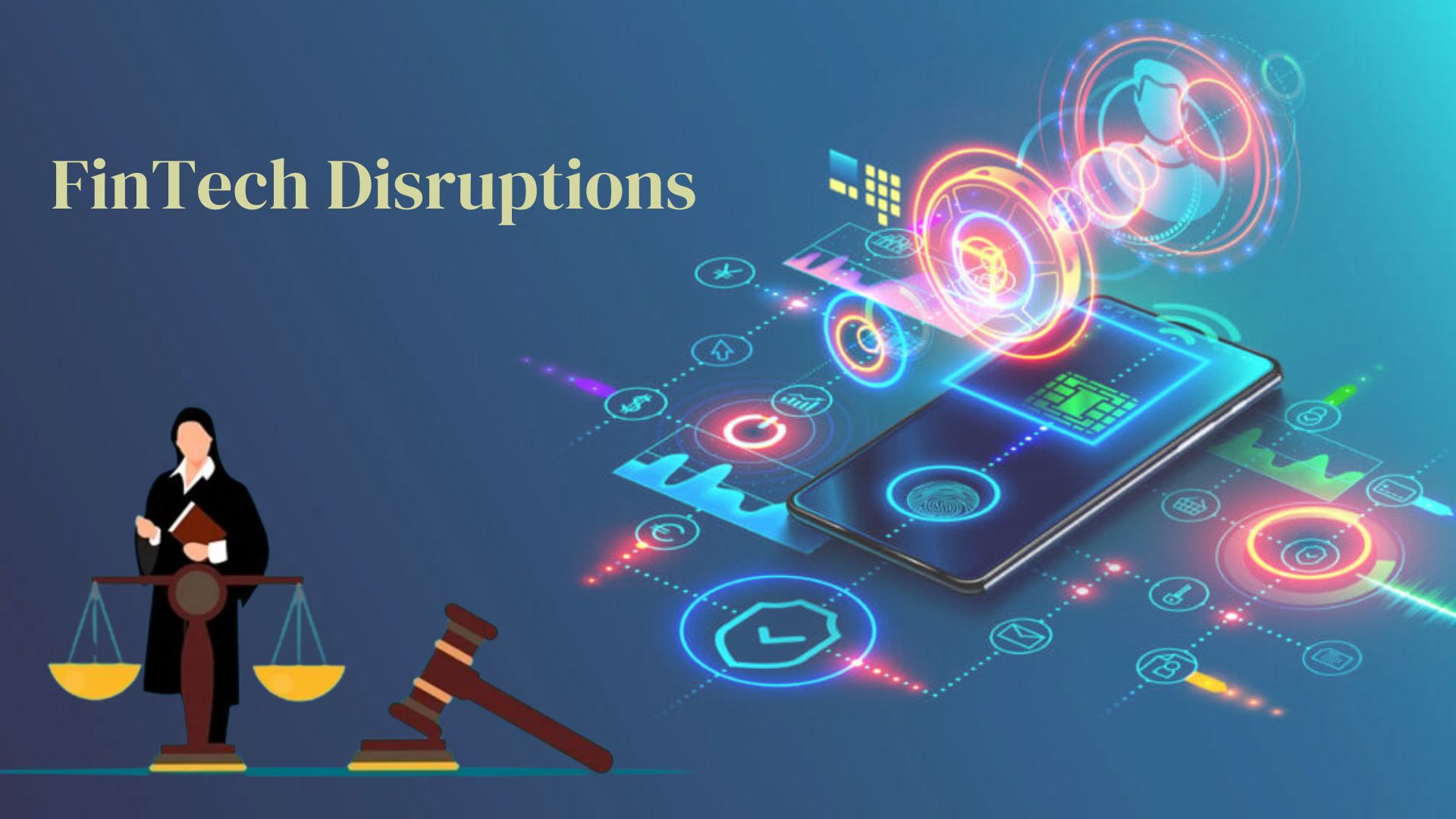The financial technology (FinTech) sector has undergone a massive transformation in recent years, fundamentally altering how financial services are delivered and consumed. This revolution, commonly referred to as FinTech disruptions, has introduced a myriad of innovative solutions such as smart contracts, online lending platforms, and blockchain technology.
These advances are empowering in many ways, yet they introduce novel legal problems that must be addressed. This post dives deep into the legal aspects of FinTech disruptions, especially exploring fintech regulation in India, smart contracts and dispute resolution, and online lending platforms.
Understanding FinTech Disruptions

FinTech disruptions encompass a broad range of technological innovations that enhance or automate financial services. These disruptions include:
- digital payment systems,
- blockchain technologies,
- robo-advisors,
- peer-to-peer (P2P) lending, and
- online lending platforms.
The rapid adoption of these technologies is reshaping traditional financial systems, making transactions more efficient and accessible. However, the pace at which these technologies evolve often outstrips the development of regulatory frameworks, leading to significant legal and regulatory challenges.
FinTech Regulation in India

Over the years, India has seen many FinTech disruptions. Many start-ups and established firms are leveraging technology to offer innovative financial solutions. The Reserve Bank of India (RBI) and other regulatory bodies have been proactively creating a conducive environment for FinTech innovation while ensuring consumer protection and financial stability.
At present, FinTech regulation in India focuses on areas like:
- digital payments,
- cryptocurrency, and
- online lending platforms.
For digital payments, the RBI has implemented guidelines to enhance security and consumer trust. The Payment and Settlement Systems Act has been introduced to provide a legal framework for the regulation of payment systems in India.
Cryptocurrency has remained a contentious issue till now. The Indian government has been oscillating between outright bans and regulatory frameworks on this front.
Online lending platforms, which facilitate P2P lending, are regulated by the RBI under the Non-Banking Financial Company (NBFC) framework, ensuring transparency and consumer protection.
Smart Contracts and Dispute Resolution

One of the most promising FinTech disruptions is the advent of smart contracts. These self-executing contracts, coded on blockchain platforms, automatically enforce the terms of an agreement when predefined conditions are met.
Smart contracts offer several advantages, including:
- reduced transaction costs,
- increased efficiency, and
- enhanced security.
However, they also raise complex legal questions, particularly concerning dispute resolution. Traditional legal systems are ill-equipped to handle disputes arising from smart contracts, given their automated and decentralised nature. As smart contracts become more prevalent, it is crucial to develop new legal frameworks for dispute resolution that can address the unique challenges they present.
This includes creating specialised courts or arbitration bodies with technical expertise in blockchain technology and smart contracts.
Additionally, there is a need for international cooperation to develop uniform legal standards for smart contracts and dispute resolution, ensuring consistency and predictability in cross-border transactions.
Online Lending Platforms

Online lending platforms have emerged as a significant FinTech disruption, offering an alternative to traditional banking by providing easier access to credit for individuals and small businesses.
These platforms use advanced algorithms and big data analytics to assess creditworthiness, making the lending process faster and more efficient. However, the rapid growth of online lending platforms has also led to regulatory and legal challenges.
FinTech regulation in India, particularly concerning online lending platforms, aims to ensure that these platforms operate transparently and protect consumers from predatory lending practices. The RBI has issued guidelines requiring online lending platforms to disclose their interest rates, fees, and other charges transparently. Also, these platforms must adhere to data protection laws, ensuring that consumer information is securely handled.
Legal implications also arise from the potential for fraud and misuse of personal data. As online lending platforms increasingly rely on data-driven credit assessments, there is a heightened risk of data breaches and identity theft. Regulators must enforce stringent data protection measures and ensure that platforms implement robust security protocols to safeguard consumer information.
Why Law Students Need to Learn About FinTech Disruptions?

The knowledge about fintech disruptions is crucial for law students, especially those aspiring to become corporate lawyers. Here are some fields where this knowledge can help shape their law careers:
- Corporate Law: Corporate lawyers frequently deal with mergers and acquisitions, corporate governance, and compliance issues. FinTech disruptions introduce new dynamics into these areas.
For instance, knowledge of fintech regulation in India is essential for ensuring that corporate clients comply with relevant laws and avoid potential legal pitfalls.
- Intellectual Property Law: FinTech innovations often involve new technologies and software, making intellectual property protection critical.
Law students with a grasp of FinTech can better navigate the complexities of patenting software, protecting trade secrets, and managing intellectual property disputes. This expertise is valuable in helping tech companies safeguard their innovations.
- Data Privacy and Cybersecurity Law: The FinTech sector heavily relies on data, making data privacy and cybersecurity paramount. Lawyers specialising in these fields need to understand the legal aspects of data protection laws and the regulatory requirements for FinTech companies.
Knowledge of FinTech disruptions can help lawyers advise on compliance with data privacy regulations, manage data breaches, and protect consumers’ personal information.
- Dispute Resolution: With the rise of smart contracts, traditional dispute resolution mechanisms are being challenged. Law students who understand the nuances of smart contracts and dispute resolution will be better equipped to handle conflicts arising from automated transactions.
This knowledge is crucial for arbitrators and mediators who may need to resolve disputes involving blockchain technology.
The legal landscape is constantly evolving, and staying updated with the latest trends is essential for any lawyer. FinTech is one of the most dynamic sectors, and its rapid development requires lawyers to continuously expand their knowledge base. By learning about FinTech disruptions, law students can stay ahead of the curve and position themselves as experts in a niche but growing field.
Lawyers with fintech expertise can provide better advisory services to a range of clients, including startups launching new financial products as well as established companies integrating new technologies. They can help them navigate regulatory challenges, structure their businesses to comply with laws and manage risks associated with innovative financial technologies.
At SMS Law College, we always encourage our students to keep evolving with the times. By embracing FinTech, law students can become valuable assets to their clients and craft stellar careers as they contribute to the responsible and innovative growth of the financial industry.





